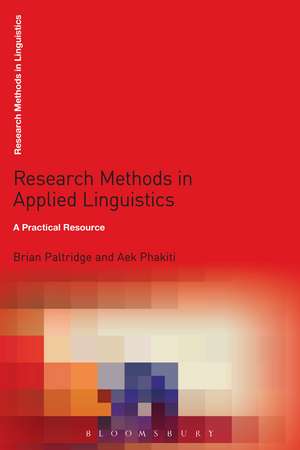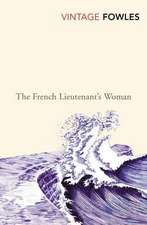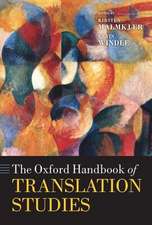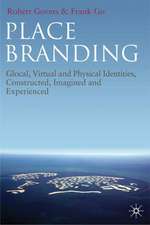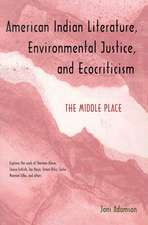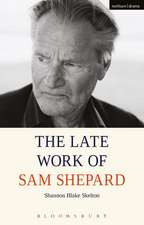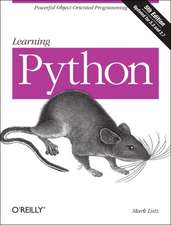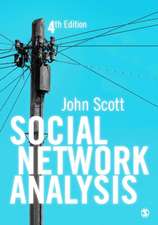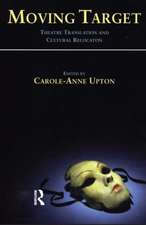Research Methods in Applied Linguistics: A Practical Resource: Research Methods in Linguistics
Editat de Brian Paltridge, Aek Phakitien Limba Engleză Paperback – 26 aug 2015
| Toate formatele și edițiile | Preț | Express |
|---|---|---|
| Paperback (1) | 248.33 lei 3-5 săpt. | +85.71 lei 10-14 zile |
| Bloomsbury Publishing – 26 aug 2015 | 248.33 lei 3-5 săpt. | +85.71 lei 10-14 zile |
| Hardback (1) | 899.68 lei 6-8 săpt. | |
| Bloomsbury Publishing – 26 aug 2015 | 899.68 lei 6-8 săpt. |
Preț: 248.33 lei
Preț vechi: 294.78 lei
-16% Nou
47.52€ • 49.43$ • 39.23£
Carte disponibilă
Livrare economică 22 martie-05 aprilie
Livrare express 11-15 martie pentru 95.70 lei
Specificații
ISBN-10: 1472525019
Pagini: 608
Dimensiuni: 156 x 234 x 30 mm
Greutate: 0.89 kg
Ediția:2 Rev ed.
Editura: Bloomsbury Publishing
Colecția Bloomsbury Academic
Seria Research Methods in Linguistics
Locul publicării:London, United Kingdom
Caracteristici
Notă biografică
Cuprins
Recenzii
This is a really welcome book: engaging, readable, personable, accessible, useful, and interesting. I would certainly recommend it to beginner research students.
This important volume, the work of a diverse group of experienced researchers, introduces beginning researchers to the available resources on research approaches to language teaching and learning ... It is an excellent companion to anyone interested in doing research in Applied Linguistics. The book is relevant to students as well as experienced researchers as, apart from succinctly describing principal concepts in research methodology, it also provides references useful for further investigation ... The key issues and sociolinguistic areas relevant to research methods are clearly addressed [...] making it an invaluable resource for language teaching and learning. The strength [...] is in the clear and cohesive structure of both parts of the volume, the clarity of style consistent throughout, and practical illustrations make the book a very valuable and motivating read.
The collection is recommended not only to the students who are its intended readership, but also to supervisors of specific topics and to lecturers on research methods wanting up-to-date summaries.
The editors made strong choices in their selection of authors for the individual chapters, most of which are well known in their fields ... The result is a solid volume, coherently constructed, written in accessible language for the target audiences ... Students will undoubtedly find this book to be a good resource as they select a research methodology, and it will help them better understand the concerns associated with their selection ... What Paltridge and Phakiti have done well is to meld discussion not only of qualitative, quantitative and mixed methods and research techniques and approaches, but also of a great number of other considerations (ethics, sample studies, lists of academic journals in applied linguistics, etc.) into one orderly, intelligible and effective presentation of material.
What I love about this book is the comprehensive material it provides: it discusses the essential elements of each research method and illustrates with samples from previous research. This fact makes this book unique and vital to Applied Linguistics researchers.
The book is comprehensive. I particularly like the break-down into two sections: one on methods, and one on specific areas of research within language acquisition and use.
Descriere
Research Methods in Applied Linguistics is designed to be the essential one-volume resource for students. The book includes:* qualitative, quantitative and mixed methods* research techniques and approaches* ethical considerations* sample studies* a glossary of key terms* resources for studentsAs well as covering a range of methodological issues, it looks at numerous areas in depth, including language learning strategies, motivation, teacher beliefs, language and identity, pragmatics, vocabulary, and grammar. Comprehensive and accessible, this is the essential guide to research methods for undergraduate and postgraduate students in applied linguistics and language studies.
